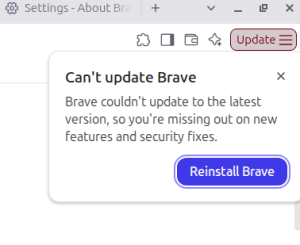FTC Commission Votes 3-2 to Protect Gig Workers from Unfair Practices
The Federal Trade Commission (FTC) Commission voted to adopt a policy statement that protects gig workers from unfair labor practices. The FTC will prioritize enforcing rules meant to combat unfair, deceptive, and anticompetitive practices in the gig economy.
Well-known “gig” companies include Uber, Lyft, DoorDash, and Instacart. These companies rely on contract workers who typically provide their own work equipment, such as their vehicles, mobile devices, or laptops.
Gig workers often complain of manipulative or deceptive practices and diminished bargaining power compared to “mainstream” employment. The FTC alleges that some of the top “gig” companies may engage in unlawful or anti-competitive practices like restricting employees from finding other work, focusing on concentrated markets where there might be only a limited amount of contract work, or conspiring with similar companies to fix wages.
Labor costs are among the biggest expenses for employers. The annual cost of each employee may actually be 1.4 times their base salary when one calculates for benefits and payroll taxes.
Employers may find gig workers especially attractive because they don’t have to pay for the equipment used for the work, pay for Workers’ Comp insurance, unemployment insurance, or (typically) pay payroll taxes. This puts an extra cost burden on gig workers who have to own and operate the equipment, cannot file a Workers’ Comp claim against their employers’ insurance if they are injured on the job, and take on an extra tax burden.
According to the FTC, 16% of American workers reported earning money through a “gig” company. Forbes put that figure as high as 36%. 50% of gig workers say gig work is important for paying the bills. The commission issued a report indicating that many gig workers come from minority communities and may be especially vulnerable to fraud in the gig or “work from home” economy.
Workers reported that they did like the flexibility of gig work. People who have difficulty holding down a “normal” full-time job find the freedom and flexibility especially attractive. People with disabilities or a serious illness have an easier time taking time off for a doctor’s appointment, for instance.
Some gig companies have gone out of their way to engage with disabled workers. Lyft partnered with NAD to integrate tools for deaf drivers, for instance.
One downside is that a disabled person might take longer to accomplish tasks, which impacts pay. Gig work typically pays per job, not per hour, which can hurt hourly pay if a person can’t do as much per hour.
The FTC estimates that the gig economy could be worth $455 billion annually by 2023.
State-level attempts to combat issues in the gig economy include Alameda County Superior Court Judge Frank Roesch rejecting Proposition 22, which would have allowed gig companies to classify their gig workers as employees. Uber and Lyft had threatened to leave California if the proposition didn’t pass. The plaintiffs in the case, three drivers and the Service Employees International Union, claimed that the proposition improperly blocked gig workers from accessing California’s workers’ compensation program.
Drivers and riders have also filed lawsuits against Uber and Lyft, alleging that the companies failed to provide adequate protection against physical or sexual assault.
The FTC encourages gig workers to call 1-844-762-6572 or contact their closest National Labor Relations Board Field Office or submit a complaint on the NLRB’s website if they believe their rights have been violated.








